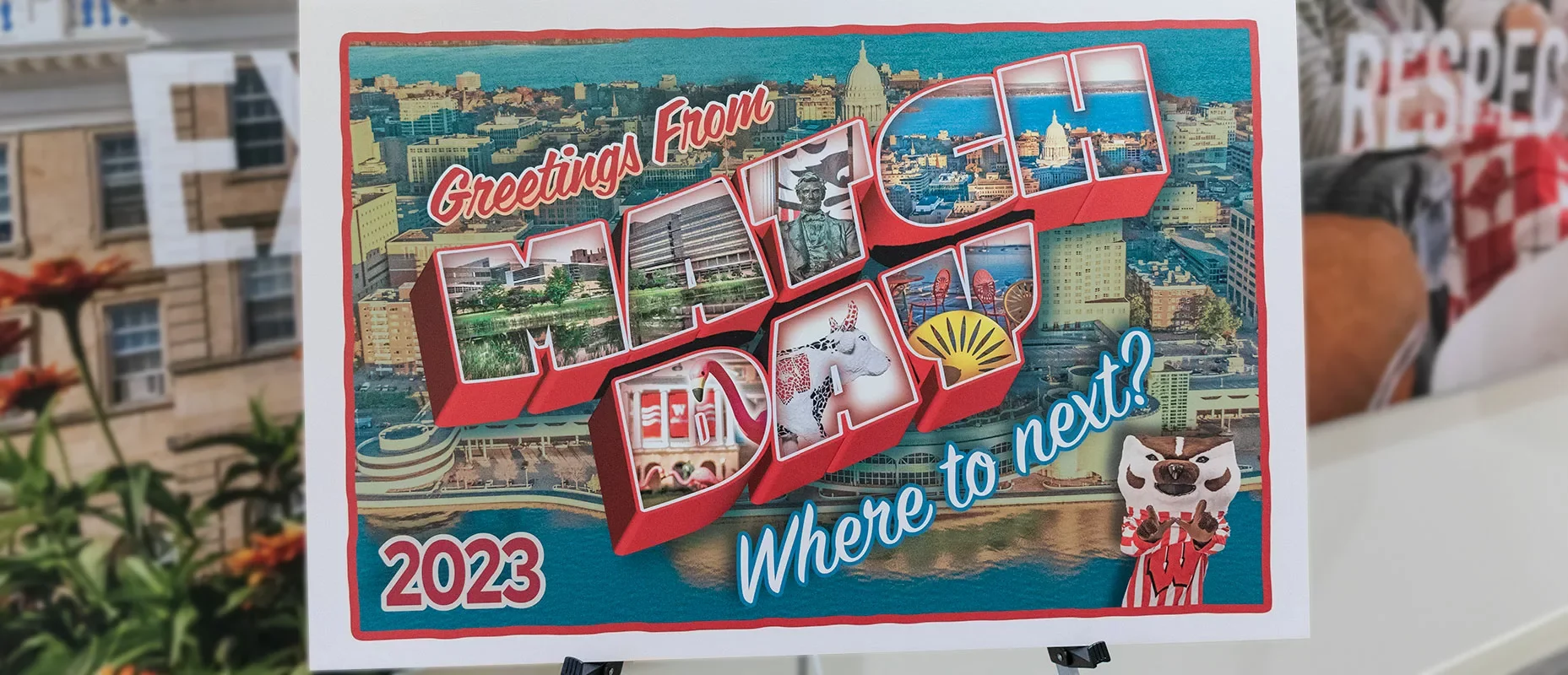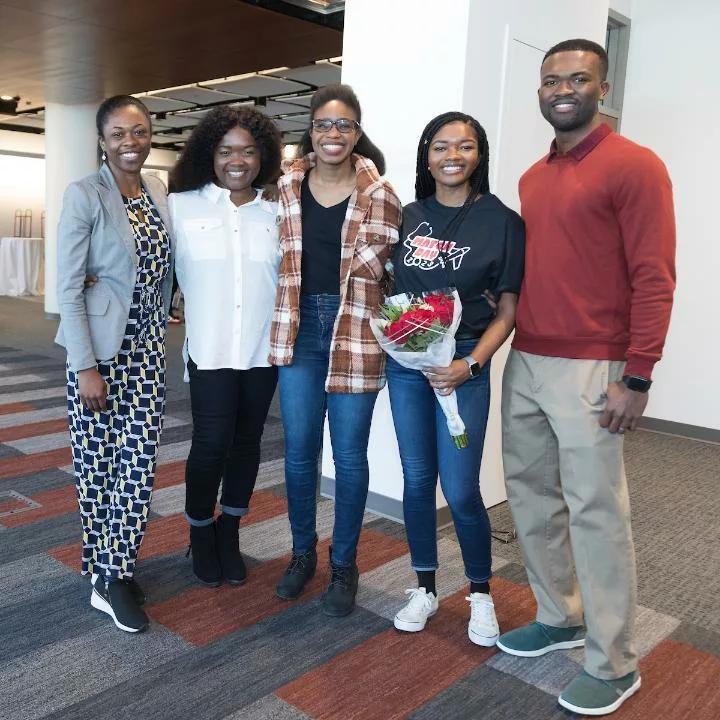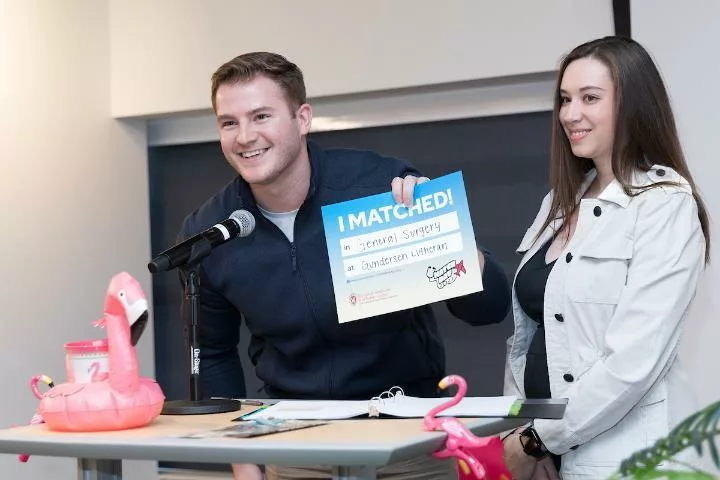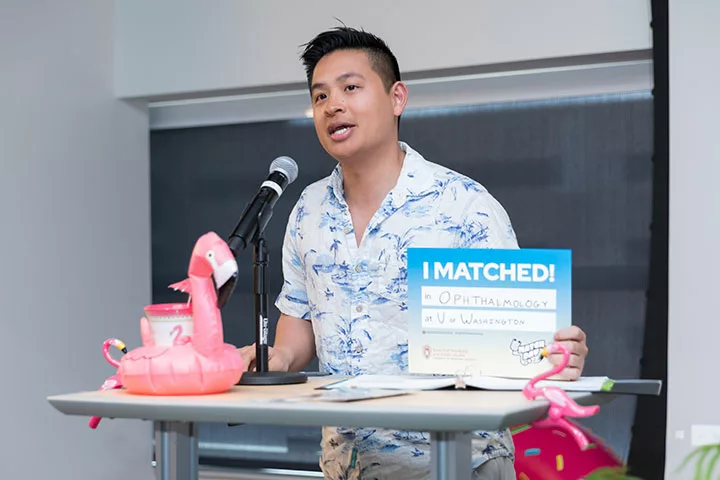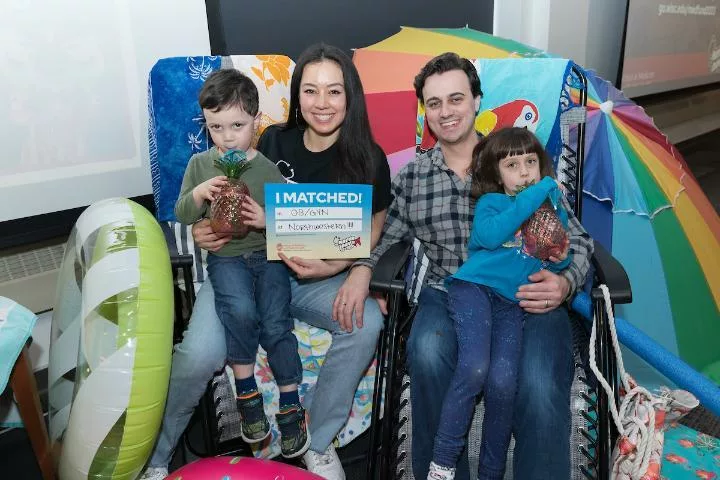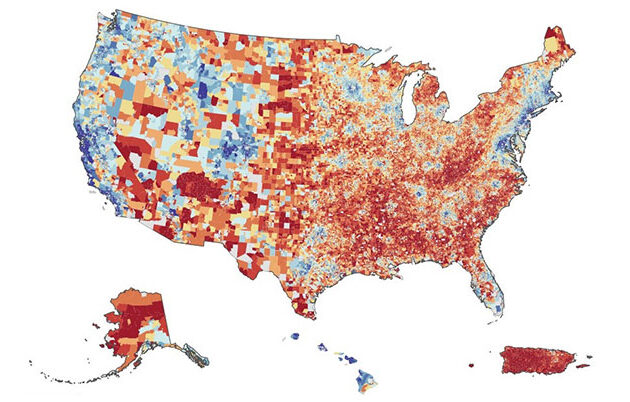Spencer Treu hails from Hillsboro, Wisconsin, and is one of many students not traveling in a literal sense for residency — he matched into general surgery at Gundersen Lutheran Medical Foundation in La Crosse, Wisconsin. A member of the school’s Wisconsin Academy for Rural Medicine (WARM), Treu is receiving special training to improve the health of rural communities. He already lives in La Crosse because the Gundersen Health System serves as the school’s Western Academic Campus and is a partner in WARM. Treu said he ultimately plans to serve as a rural surgeon in his hometown, which is served by Gundersen.
“I am super excited for this next step and I’m going where my family and I wanted to go so it feels like home,” he said. “It is that feeling that you are going where your hearts wants you to go. This moment feels like the culmination of everything our class has worked for, but we also know that now is the time to buckle down and get to work. We have a lot to learn as we more fully become the next generation of health care providers.”
Treu recalls the moment he realized he was going to be a doctor. As fate would have it, it was a Saturday night just days before he was set to begin his junior year at Winona State University and matriculate into a completely different program. While that realization caused a pivot in his academic trajectory, the Wisconsin native now says it’s all part of a plan that will eventually lead him back home again, to serve his community as a practicing physician.
An internship with rural community general surgeon Dr. LeRoy Trombetta during his undergraduate years solidified his interest in serving rural patients in this specialty. While local family medicine physicians are emblematic of small-town doctors, Treu believes general surgeons also play an enormous role in rural health and can serve as pillars of the community.
In another twist of fate, Trombetta is now a physician at Gundersen and a clinical assistant adjunct professor in the school. He has continued to mentor Treu during WARM and will continue to mentor him during his residency.
“I began to realize while working with Dr. Trombetta what a rural surgeon can bring to a community, what they are called on for, and how valuable that is,” Treu said. “From the significant trauma and injuries that are common in rural communities to being involved in something like a cancer screening, surgery, and follow-up care, a skilled general surgeon can be an extremely important component of a critical access hospital serving a rural area.”
Even as a student, Treu was making an important contribution to his hometown through his WARM community project. Knowing that small towns often face issues attracting health care professionals, his concept was to spark interest from within, specifically with those most likely to remain in their community. He created a new course at his former high school to expose students to a wide range of health professions that is now self-sustaining.
“I wanted to increase peer exposure to careers in health care and present this path as a realistic option for kids like me from Hillsboro,” he said. “I thought it was important to generate excitement for these careers that can be pursued anywhere but also right in our area.”
Connections to health care lead Jonathan Le to ophthalmology
